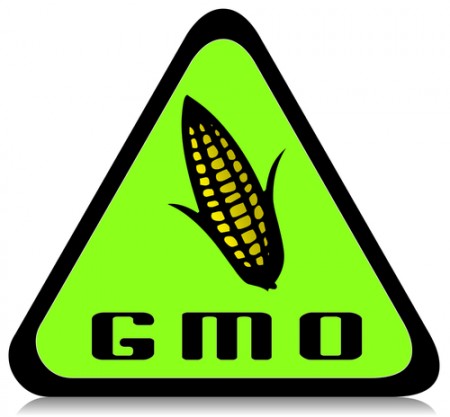 GMO: Genetically Modified Organisms
GMO: Genetically Modified Organisms
You most likely have heard about GMOs. In fact you’ve probably also heard that they are bad. But do you know why? What are they anyway?
While the subject is quite complex, and we certainly don’t have all the answers, we’d like to share what we do know.
Definition of GMO
AGMO is an organism whose genome has been altered by the techniques of genetic engineering, so that its DNA contains one or more genes not normally found there.
Do crops need GMOs?
Large-scale commercial farms practice monoculture, where the same crop is grown over a large area for a number of consecutive years. One of the drawbacks of this type of farming is that soil health is depleted of nutrients and micro-organisms. The soil and plants then need to be treated with synthetic fertilizers for growth and herbicides for weed control.
However, weeds and harmful pests become tolerant of herbicides and pesticides and require increasingly more and more chemical applications throughout the crop’s growth cycle. This can cause reduction of crop yield. With the advent of genetic engineering, seeds have been developed to be pesticide and herbicide resistant.
How does Genetic Engineering work?
The process of genetic engineering:
- Isolates a gene with a desired trait.
- Changes the gene so it will work in plants.
- Prepares plant cells or tissues.
- Transforms plant cells using a gene gun or bacteria infection method.
- Re-grows cells to plants via culture tissue (cloning).
These processes involve scientific uncertainties and considerable risk potential.
GMO in action
Here’s the scenario: A farmer plants 100 acres of corn. Corn is susceptible to the corn borer and half of the crop is lost due to this invasive pest. There’s a pesticide for corn borer called Bt-Toxin (Bacillus thuringiensis). Thanks to genetic engineering, the farmer can plant corn seeds injected with Bt-Toxin and say goodbye to corn borers.
Since the Bt gene is foreign to corn, scientists attach a promoter, usually taken from a virus, which acts as an ‘on’ switch. This turns the gene ‘on’ 24/7. A ‘stop’ signal is also attached to turn the gene ‘off’.
Of the millions of these transgenes that are shot into the cells, or infected into the cells by bacteria, only some of the genes make it into the DNA of the cells. Since the scientists can’t tell which ones made it into the cells, prior to this process they add an ‘antibiotic resistant’ marker gene. This new gene creates a protein that protects the cell from a specific antibiotic.
 Next, they douse that plate of cells with antibiotics.This kills off most of the cells except the very few where the transgene made it into the DNA – where the ‘antibiotic resistant’ gene is functioning. Thus, the surviving cells are ‘antibiotic resistant’.
Next, they douse that plate of cells with antibiotics.This kills off most of the cells except the very few where the transgene made it into the DNA – where the ‘antibiotic resistant’ gene is functioning. Thus, the surviving cells are ‘antibiotic resistant’.
These surviving ‘antibiotic resistant’ cells are cloned into GM plants. Each cell of each plant now contains the gene that produces the Bt-toxin. It also contains the ‘antibiotic resistant’ gene … which is now in the food that you eat!
It’s not nice to fool Mother Nature!
How does all of this relate to your food and ultimately to your health?
The process of creating GM seeds can cause unexpected changes in the DNA:
- Mutations
- Deletion of genes
- Altered gene expression
- Permanently On or Off: Remember the promoter we mentioned earlier? If not turned off, it might cause allergens and toxins in humans. Also, If antibiotic resistant genes transfer, they might create super diseases, resistant to antibiotics.
- Unpredictable changes in the DNA - DNA can be 2-4% different from its natural parent.
Animal and human studies to consider
In a study by Monsanto, made public because of a lawsuit, rats fed Bt corn developed signs of liver and kidney toxicity.
In a 2011 Canadian study the Bt-toxin from Monsanto’s corn was found in the blood of 93% of the pregnant women tested and 80% of the blood of their unborn babies.
A February 2012 study in the Journal of Applied Toxicology found that the Bt-toxin from corn also broke open holes in the walls of human cells, causing leakage. The authors suggested that this may be the same way that Bt-toxin kills insects. It might also be a causative factor in digestive disorders and permeable intestines.
There are implications of a connection between GMOs and autism, compromised gut flora, even DNA from GMO crops that can transfer into the DNA of our own gut bacteria.
Current GMO crop statistics
Commercialized GM crops in the United States include: 88% of corn, 94% of soy, 90% of canola, 95% of sugar beets (not sugar cane), 90% of cotton, more than 50% of Hawaiian papaya, and over 24,000 acres of zucchini and yellow squash.
Due to the reliance on subsidized commodity crops such as corn and soy, it is estimated that 80% of processed foods now contain GMOs. Other sources of GMOs may come from consuming meat, eggs and dairy from animals raised in CAFOs and given GMO feed.
 No GMOs here!
No GMOs here!
Here at Wise Choice Market, we’re all about offering organic real foods. No GMOs, no laboratory created Frankenfoods here!
Whether you’re looking for healing foods such as bone broth and fermented foods, or healthy snacks and desserts, we’ve got them all!
And don’t forget to check out our library of informative articles.
Most of the information for this article was retrieved from the Institute for Responsible Technology.
Disclaimer: These statements have not been evaluated by the Food and Drug Administration. These products are not intended to diagnose, treat, cure, or prevent any disease.
Information provided in this article is not designed to and does not provide medical advice, professional diagnosis, opinion, treatment, or services to you or to any other individual. This is general information for educational purposes only. The information provided is not a substitute for medical or professional care, and you should not use the information in place of a visit, call, consultation, or the advice of your physician or other healthcare provider. Wise Choice Marketing Inc is not liable or responsible for any advice, course of treatment, diagnosis, or any other information, services, or product you obtain through Wise Choice Marketing Inc.


 Loading... Please wait...
Loading... Please wait...













